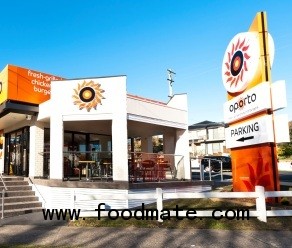
But the man who once crunched the numbers for media company Fairfax before helping turn around Burger King in New Zealand knows a stable industry when sees one.
"It doesn't tend to be that cyclical," Mr Bayliss said. "It's a good sector to be in and being in chicken in that sector is a good place to be as well. There's a big move (from beef) to chicken."
Mr Bayliss took over in April from Mark Lindsay and Tim Tighe as chief executive of Quick Service Restaurant Holdings, the private equity-owned entity that's home to the Red Rooster, Chicken Treat and Oporto brands.
In his biggest move since taking the helm, QSRH is bringing Oporto to WA for the first time. The first outlet of the Portuguese-style grilled chicken franchise opens in South Perth later this month.
Mr Bayliss believes the time is right for the Sydney-grown chain to set up in the home town of the other QSRH brands.
"There's a wonderful marketplace here in WA (which) from the research that we've conducted is crying out for Oporto to come to the West. We expect it go well," he said."
Oporto distinguished itself from other fast food outlets by appealing to a younger, white-collar demographic, he said.
While Nando's - well established in WA with about 10 restaurants in the metropolitan area - offered the most similar product on a dine-in model, Mr Bayliss said competition for the new entrant was much broader.
There are about 140 Oporto restaurants nationwide - including about 100 in NSW - with about 15 franchises being added per year.
QSRH is targeting 10 store openings in WA over the next 12-18 months, mainly in shopfronts and food courts. The first few will be company-owned.
Across all brands, Mr Bayliss said the company was looking to grow from the existing 630 outlets to more than 800 over the next four to five years.
"That's very, very do-able. We've got some fairly detailed plans on that for each of the three brands.
"It's really about building a long-term sustainable business that's really here to stay."
QSRH no longer makes financial results public. It made a net profit of about $4 million in 2010-11, turning around a $4.6 million loss the year before.
Mr Bayliss said since Archer Capital acquired the business, profit had increased significantly and sustainably.







